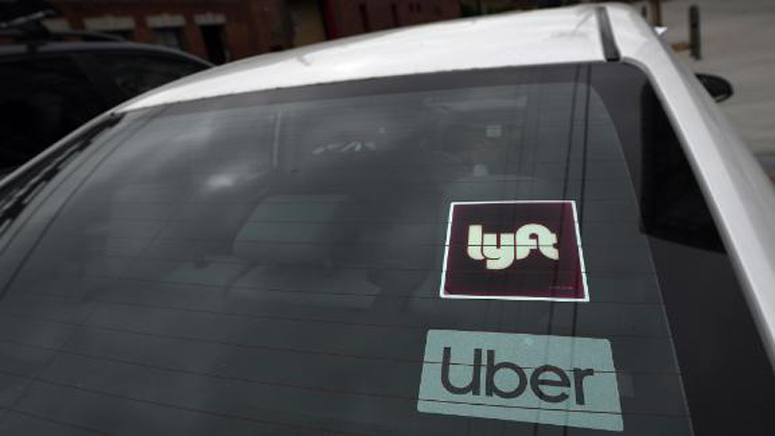BOSTON (AP) — The highest court in Massachusetts ruled Tuesday that two state ballot questions asking voters whether drivers for app-based ride-hailing companies should be considered contractors, instead of employees, are unconstitutional.
The Supreme Judicial Court ruled that the ballot questions should not have been certified by the state attorney general and are not suitable to be placed on the November ballot.
A coalition of app-based businesses including Uber, Lyft, DoorDash and Instacart backed the measures, which are virtually the same, collecting the tens of thousands of signatures needed for each question to secure a spot on the ballot.
Supporters argued the ballot questions would have set a minimum earnings guarantee for workers, extended new benefits — including health care stipends, paid sick time and paid family and medical leave and occupational accident insurance — and protected drivers from discrimination.
At the same time, backers said the questions would have maintained the status of the workers as independent contractors instead of employees, giving them the freedom to work when, where, how often and how long they want.
Critics, including labor unions, described the ballot questions as a ploy by the companies to avoid paying taxes and paying workers fairly while allowing big tech companies “to buy their way out of the basic obligations of every other business.”
Opponents also said the firms backing the questions are pushing a false choice that drivers can only maintain scheduling flexibility by surrendering other worker rights.
A dozen Massachusetts voters challenged the certification of the questions, saying they violate the state constitution, which says petitions must contain only related or mutually dependent subjects, and because the attorney general’s summaries of the proposals does not explain how they would change existing law, if approved.
“We conclude that the petitions contain at least two substantively distinct policy decisions, one of which is buried in obscure language at the end of the petitions, and thus fail” the constitution’s related subjects requirement, the court wrote.
“As such, the Attorney General’s decision to certify the petitions was in error, and accordingly the petitions may not be placed on the ballot,” the high court wrote.
Conor Yunits, a spokesperson for the ride-booking company campaign, said a majority of Massachusetts voters and rideshare and delivery drivers would have voted for the ballot question.
“That’s exactly why opponents resorted to litigation to subvert the democratic process and deny voters the right to make their own decision,” Yunits said in a written statement.
“The future of these services and the drivers who earn on them is now in jeopardy, and we hope the legislature will stand with the 80% of drivers who want flexibility and to remain independent contractors while having access to new benefits,” he added.
Martin El Koussa, an Uber driver and lead plaintiff in the case, welcomed the ruling.
“This is an enormous victory for drivers like me who only want the ability to work hard for fair wages,” he said in a written statement, calling the decision “a major step forward in our fight to be recognized as employees and be compensated fairly.”
Critics of the proposed ballot questions also hailed the court’s action.
“Millions of Massachusetts drivers, passengers, and taxpayers can rest easier knowing that this unconstitutional bid by Big Tech CEOs to manipulate Massachusetts law has been struck down by the Supreme Judicial Court,” said Wes McEnany, a spokesperson for opponents of the measures.
It’s not the first time Uber, Lyft and other app-based firms have waded into the issue.
In 2020, the companies backed a ballot question in California designed to exempt Uber and other app-based ride-hailing and delivery services from a state law requiring drivers to be classified as employees eligible for benefits and job protections.
Voters approved the question after Uber, Lyft and other services spent $200 million in its favor, making it the most expensive ballot measure in state history.
In 2021, a judge struck down the measure, ruling it unconstitutional. That ruling is being appealed.
(Copyright (c) 2024 The Associated Press. All Rights Reserved. This material may not be published, broadcast, rewritten, or redistributed.)

